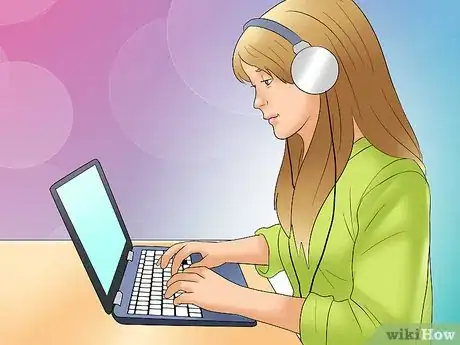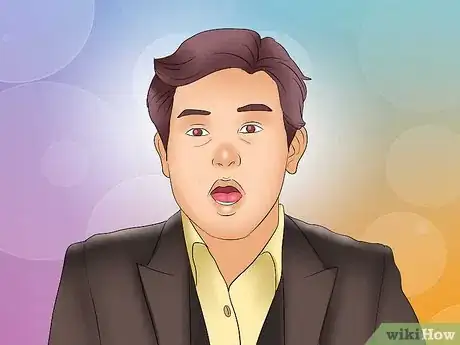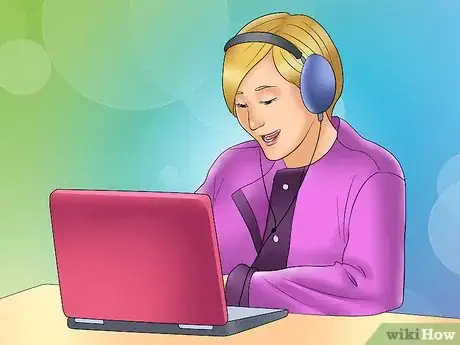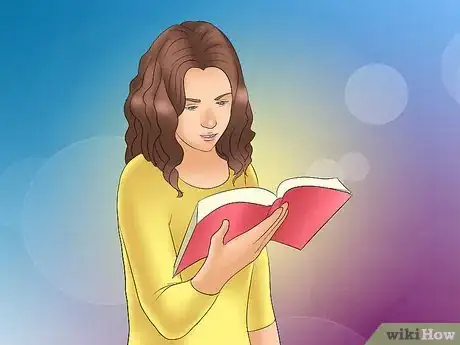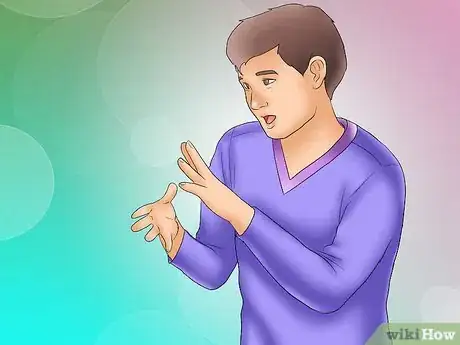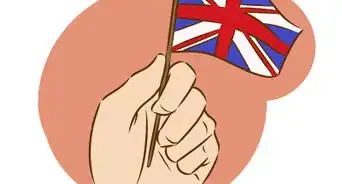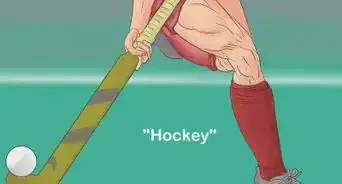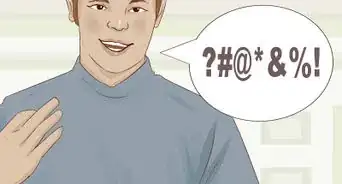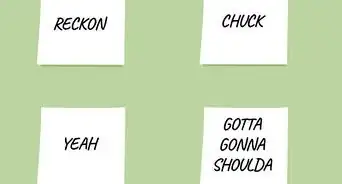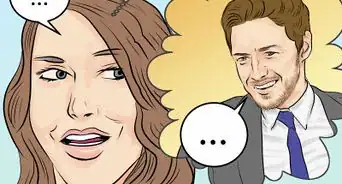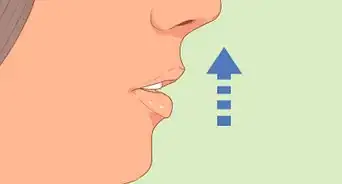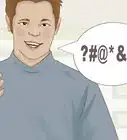wikiHow is a “wiki,” similar to Wikipedia, which means that many of our articles are co-written by multiple authors. To create this article, 34 people, some anonymous, worked to edit and improve it over time.
This article has been viewed 200,122 times.
Learn more...
The Geordie dialect is heard in north-east England in the communities around the River Tyne (Tyneside), such as Newcastle and Gateshead. Celebrities like Eric Idle (of Monty Python), Sting, Andy Taylor (of Duran Duran), singer Cheryl Fernandez-Versini, singer Perrie Edwards and Jade Thirlwall, and comedians Ant & Dec are some well-known Geordies. Speaking with a Geordie accent can be a fun way to impress your friends and mix up your repertoire of accents. These steps will teach you how.
Steps
-
1Listen. Before you can properly begin to speak the dialect, you must first familiarize yourself with it. Some people may find it within their means to hear the dialect first-hand. For those unable to get in contact with an in-the-flesh Geordie, you can hear the dialect in movies that take place in the area, such as "The Likely Lads", "Byker Grove" and "Billy Elliot".
-
2Learn the sound differences. Before getting on to new words, learn how to say the ones you already know with a Geordie accent. Here are some of the more common Geordie mannerisms. (To understand these sounds represented by the symbols used below, you made need to consult the International Phonetic Alphabet. At https://en.wikipedia.org/wiki/Ipa, you can learn about the IPA and hear the different sounds pronounced.)
- Vowels
- A final -er becomes /a/, so brother sounds like brotha.
- /æ/ sounds often become /ɛ/, so sat sounds like set.
- /o:/ in words like walk becomes /a:/ or /æ:/.
- Note that the pronunciation of walk with the /o:/ sound is the British pronunciation, not the American one, which has the /a:/ sound.
- /ə:/ in words like work becomes /o:/, so that work and port have the same vowel sound.
- /æu/ in words like crown and /ou/ in words like "know" become /u:/, so crown sounds like croon and know sounds like new.
- /ɛ/ often becomes /i/, especially in words spelled with ea like head. Thus head sounds like heed.
- Final -ing is pronounced /ən/, so talking sounds like talken.
- Consonants
- The /t/ (that is pronounced more commonly in American dialects) in words like "notice" is realized as a glottal stop. This means that instead of pronouncing the /t/ sound, you make a hard pause between the two vowel sounds.
- Final r is dropped following a vowel sound. This is typical of British dialects.
- Vowels are sometimes added between successive consonants, usually when the consonants are at the end of the word.
- Many consonant clusters become altered in both stressed and unstressed syllables. So, for example, dew sounds like Jew. This is called Yod-coalescence, and affects the clusters [dj], [tj], [sj] and [zj], turning them into [dʒ], [tʃ], [ʃ] and [ʒ].
- These are just a few of the numerous sound differences between Geordie and other dialects. You can visit http://www.bl.uk/learning/langlit/sounds/case-studies/geordie/ for a more complete list with audio pronunciations, as well as larger lists of grammatical and lexical features.
Advertisement - Vowels
-
3Learn the vernacular. This is where you start building up your Geordie vocabulary. Go back to step one and start listening - being more accustomed to the accent, you'll start to notice the slang. It's best to pick up the words as you hear them - that way you can naturally acquire the common words. Geordie has a large vocabulary of unique words; many of these are formed just by sound changes, but some are entirely unfamiliar. A few of these are:
- a-one for "one"
- aught" for "anything"
- aye for "yes"
- bairn for "child"
- champion for "great"
- gan for "go"
- loaning for "lane"
- mebbies for "maybe"
- somewhat for "something"
- tae for "to"
- There are many more, so keep listening and practicing to acquaint yourself more fully.
-
4Learn the grammar. Geordie has a number of unique grammatical features that distinguish it from Standard English. A few are listed here.
- Verbal Constructions
- Third person plural: is rather than are, and was rather than were
- mustn't have + past participle, rather than can't have + past participle
- Past tense: come rather than came, and done rather than did
- Nouns and Pronouns
- No plural marker for certain count nouns, e.g. 10 month ago
- First person singular: us rather than me
- Second person plural: youse rather than you
- Reflexive pronouns: mysell, yoursell, hissell, etc. rather than myself, yourself, himself, etc.
- Negative Constructions
- divn't rather than don't
- I've not, you'll not, etc. rather than I haven't, you won't, etc.
- Multiple negation, e.g. didn't do nothing
- Prepositions, Conjunctions, and Adverbs
- for to + infinitive, rather than to + infinitive
- so as rather than so that
- No adverbial marker, e.g. quick rather than quickly
- Verbal Constructions
-
5Practice. It may only be a dialect, but for some, it can be just as difficult as learning a foreign language, or even harder because one needs to conceptualize the idea of a language that is already known. Try to find a Geordie friend who can correct you. The best way to practice is to try as hard as you can to not break character. Doing this will force you to think about the way you are speaking, until it begins to feel natural.
Community Q&A
-
QuestionHow does a Geordie say "come on"?
 Community AnswerHoway. It has a multiple applications, as in "right, let's do this", "are you serious?" as in Howay man (what are you thinking?).
Community AnswerHoway. It has a multiple applications, as in "right, let's do this", "are you serious?" as in Howay man (what are you thinking?). -
QuestionWhat's another word for place?
 DonaganTop AnswererPosition, spot, area, locality.
DonaganTop AnswererPosition, spot, area, locality. -
QuestionHow does a Geordie say "our"?
 Community AnswerThe word "our" would be pronounced like "ore", as in iron ore.
Community AnswerThe word "our" would be pronounced like "ore", as in iron ore.
Warnings
- You'll probably not want to try practicing your Geordie with strangers, as they may think you're making fun of them.⧼thumbs_response⧽
- Note that there are differing opinions on what exactly are the classifications for a Geordie; for example, some believe only miners are Geordies. Be careful that you're not going to offend somebody with the term.⧼thumbs_response⧽
